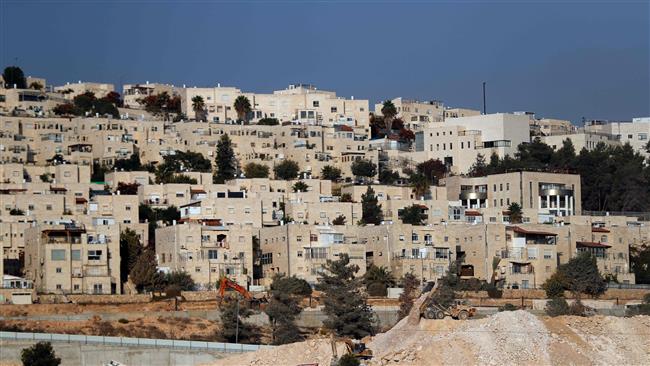
RNA - The Israeli ministers are set to vote on the so-called “Greater Jerusalem” bill at their next meeting on Sunday, Israeli media reported on Wednesday. The bill would then need the approval of the Knesset (the Israeli Parliament) before it could become law.
The bill would also downgrade the status of three Arab neighborhoods of Jerusalem al-Quds located beyond Israel’s apartheid wall, namely Kafr Akab, Shuafat and Anata, making them “sub-municipalities” of the occupied city.
The three neighborhoods are home to around 100,000 people.
The cabinet ministers are expected to approve the bill as Prime Minister Benjamin Netanyahu has already voiced support for the measure.
According to the legislation, backed in July by Israel’s Intelligence Minister Yisrael Katz, some 150,000 residents of those settlements would be able to vote in Jerusalem al-Quds municipal elections, but the settlements would not be under full Israeli control.
However, Peace Now, an anti-settlement Israeli NGO, said, “If passed, this bill will constitute a de facto annexation and a clear step towards a de jure annexation. We cannot let this bill become law!”
The highly provocative plan, if implemented, would significantly change the city’s official demographic balance, making it a more Jewish city.
The news came on the same day that the regime in Tel Aviv gave the green to the construction of 176 new settler units in the heart of a Palestinian neighborhood in the occupied East Jerusalem al-Quds, a move which was swiftly denounced by Palestinians as a violation of international law.
Palestinians want the West Bank as part of their future independent state, with East Jerusalem al-Quds as its capital, while the Israeli occupiers of Palestinian territories deem the West Bank as “liberated land,” saying formal annexation is only a matter of time.
More than half a million Israelis live in over 230 settlements built since the 1967 Israeli occupation of the Palestinian territories of the West Bank and East Jerusalem al-Quds.
The UN and most countries regard the Israeli settlements as illegal, because the territories they are built on were captured by Israel in the 1967 war and are hence subject to the Geneva Conventions, which forbid construction on occupied lands.
Nevertheless, the Israeli regime continues to build more settlements and expand existing ones.
847/940